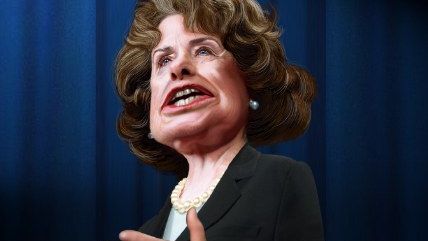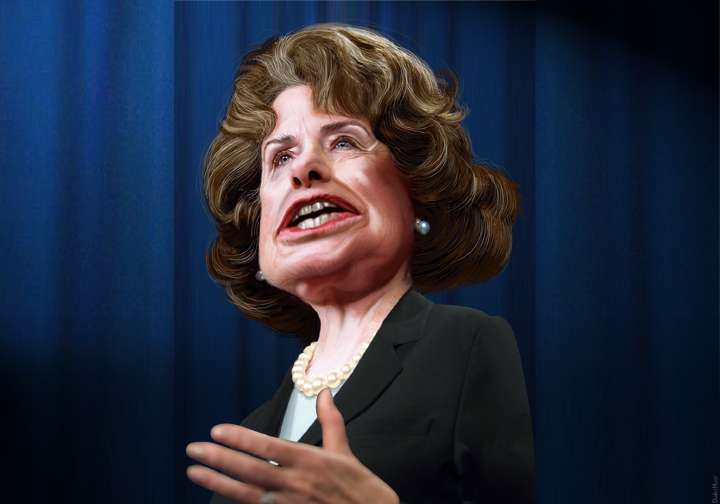Which Watchlist Would They Use to Deny Gun Rights? And Are They Even Confined to a List?
You don't have to be a gun-lover to be worried about the vagueness of the language.


In response to the Democratic proposal to prohibit people on federal no-fly lists from buying guns, Sen. Marco Rubio spoke out in opposition on Sunday, warning that there more than 700,000 possibly innocent Americans on federal watchlists that could be affected and lose their rights without any due process.
Politifact wasted no time at all declaring Rubio's statement to be "mostly false." Why? Because while Rubio is likely correct about the number of people on the list, a much fewer number are likely to be Americans. In other words, Rubio is right that innocent Americans could lose their civil liberties, but not as many as he thinks, thus only "mostly" false.
Politifact's ruling is awful and dependent on simply letting experts with government connections assert different numbers without providing any actual credible data. Apparently a former FBI guy simply saying it's "harder than people think" to get onto the no-fly list counts as rendering Rubio's argument untrue.
Then there's this nonsense, coming from Timothy Edgar, who used to oversee watchlists under both Presidents George W. Bush and Barack Obama:
But the problem of same names is less common than it used to be, and there is a reasonably efficient redress process for people to appeal to the government to get their name removed from the terrorist watch list, Edgar noted.
"That shows that the redress process is not a sham, but it also shows that a fairly significant number of people are put on the watchlist by mistake," he said.
Is this a joke? No, there is no reference to the lawsuit by the American Civil Liberties Union (ACLU) that the "reasonably efficient redress process" is in fact a sham. This is a lawsuit that not only is the ACLU winning, but the Department of Homeland Security has been forced to actually "redress" its "redress process" by a judge. And why is Edgar being treated as an objective source when he's clearly not? Why on earth should we believe that the United States only has 10,000 Americans on its list of 700,000 people (especially since we know that hundreds of thousands of them have no known ties to terrorism)?
For that matter, here's a relevant question: Which watchlists are we even talking about here? Democrats keep saying the no-fly list in their memes/arguments, but in fact the no-fly list is just a small subset of the full terror watchlist. Those who are on a watchlist but not the no-fly list are subjected to further security screenings in airports, but are permitted to fly. John T. Bennett of Roll Call noticed all these references to lists seem to be used interchangeably. What list are they talking about? It appears as though they may well be referring to the larger list:
Asked Monday about confusion over the two lists or whether the White House is citing the smaller list because it was more politically palatable, a White House spokesman said that Press Secretary Josh Earnest addressed the question in Monday's briefing. In the briefing, Earnest did not explain the discrepancies between the two lists. But in a Monday tweet, the White House referred to the "terrorist watch list," suggesting the larger list, citing a Government Accountability Office report that concluded from 2004 until 2014, more than 2,000 people in that database were able to purchase a gun.
Sen. Marco Rubio, R-Fla., a 2016 presidential candidate, said Sunday on CNN he believes "the majority of people on the no-fly list are oftentimes people that basically just have the same name as somebody else who [does] belong on the no-fly list."
It is not immediately clear which list Democrats want to give a larger role in the gun purchasing process.
The defeated [Sen. Dianne] Feinstein amendment would have prohibited individuals included on the consolidated database. Yet, in statement after statement since last Wednesday's attack in San Bernardino, Calif., Obama and his chief spokesman have referred to the federal no-fly list.
Here's what may really be happening:
But a Feinstein aide, who spoke anonymously to be candid, said her boss always has targeted the larger list. The aide pointed out that database includes the no-fly list and several others that are maintained by security agencies such as the FBI and National Counterterrorism Center.
But the aide said Feinstein has sometimes referred to the no-fly database rather than the broader one her legislation actually covers for this reason: "That's more relatable to the average person — people have heard of the no-fly list, not necessarily [ones like] the National Counterterrorism Center's TIDE database.
"I'd imagine that's why White House officials have referred to no-fly as well," the aide said.
But there's more. I've read through the actual Feinstein amendment (SA 2910), and there's only one reference to terrorist watchlist records at the very end, demanding that the attorney general make sure privacy and civil liberties are protected. But I see nothing in the actual legislation that even requires the attorney general to confine his or her refusal to allow citizens to own a firearm based on inclusion in a watchlist. Here's what it says:
"The Attorney General may deny the transfer of a firearm under section 922(t)(1)(B)(ii) of this title if the Attorney General—
"(1) determines that the transferee is known (or appropriately suspected) to be or have been engaged in conduct constituting, in preparation for, in aid of, or related to terrorism, or providing material support or resources for terrorism; and
"(2) has a reasonable belief that the prospective transferee may use a firearm in connection with terrorism.
The law further explains that its definition of terrorism applies to both international and domestic situations. The attorney general is further permitted to withhold information from the parties whose gun purchases are denied on the basis of protecting national security. Those who are denied to have the power to challenge the attorney general's decision, but the legal burden of proof required of the government to deny somebody a gun would be "preponderance of the evidence," a looser threshold than required to convict somebody of a crime. The threshold of probability is simply "more probably than not."
This proposed law actually appears to be much broader than we're being told. It appears to possibly be even stronger than its critics warn about (with the usual caveat that I'm not somebody who writes laws for a living, so I may be missing something).


Show Comments (90)